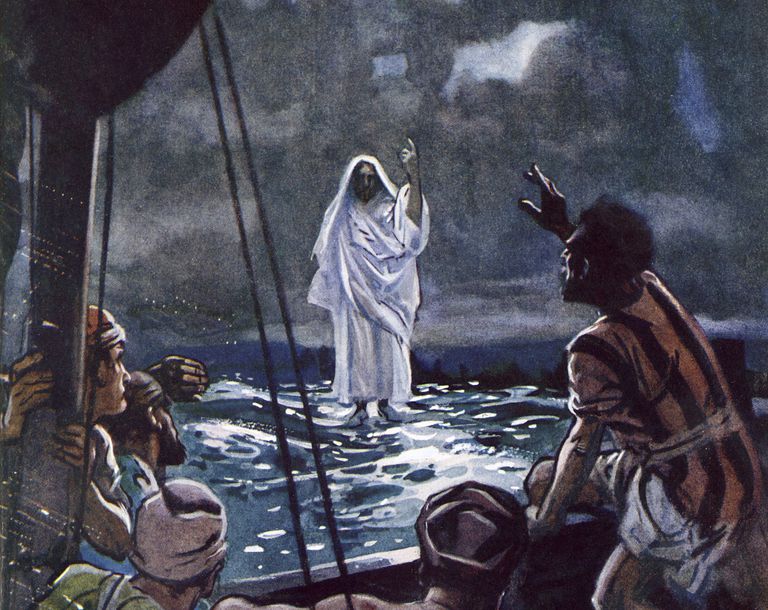“And about the fourth watch of the night he came to them, walking on the sea. He meant to pass by them, but when they saw him walking on the sea they thought it was a ghost, and cried out, for they all saw him and were terrified. But immediately he spoke to them and said, “Take heart; it is I. Do not be afraid.” And he got into the boat with them, and the wind ceased. And they were utterly astounded, for they did not understand about the loaves, but their hearts were hardened.” (Mark 6:48b-52)
We who have read the gospels for years, might not understand the full impact of what is happening, what Jesus is doing. His walking on the sea is something we might take for granted or even for people to make jokes about it. But what Jesus did by walking on the water is no laughing matter. No one can do what Jesus did. Jesus’ desire to pass by the disciples is not related to some mundane purpose. The word which Mark uses to express the act of passing by refers to an epiphany, an appearance of God to man as was recorded in the Old Testament. God made striking and temporary appearances in the earthly realm to a select individual or group for the purpose of communicating a message. In Exodus 33:19–34:7, Moses asks God to show him his glory, and God responds by passing before him and proclaiming his identity. And in 1 Kings 19:11–12, the Lord tells Elijah to stand on the mountain, “for the Lord is about to pass by.”
One can conclude from these passages that when Jesus wants to pass by his disciples, He wants them to see his transcendent majesty as God as well as to reassure them.
Now God cannot be fully seen, but Jesus can. He walks on the sea, fills baskets with bread in the desert. And so Jesus’ greeting is not simply a cheery hello to assuage the disciples’ fears. He greets them with the divine formula of self-revelation, “I am.”
We meet with God through Word and sacrament. The presence of Jesus in the bread and wine is itself an awesome miracle, one which we share in and are blessed by.
We not only meet God in Jesus Christ, we also learn about ourselves through him. The disciples’ fear and lack of comprehension in response to this miracle says something about the human condition when it comes in contact with the divine. The disciples thought they were seeing a ghost. They did not understand the miracle of the loaves, and their hearts were hardened. We rarely see God walking past or recognize his blessing, bounty, or presence in our lives. We rarely recognize the awesome miracle of His blessings on us, for if we did, we would not hesitate to share His grandeur with others who do not know Him. Instead we speak about the mundane: politics, movies, sports, the weather. Yet everyday the Lord God Almighty is passing by. He comes by His Spirit which moves in us, we who have faith in Jesus whom He has called to spread the good news. What could be more important?

